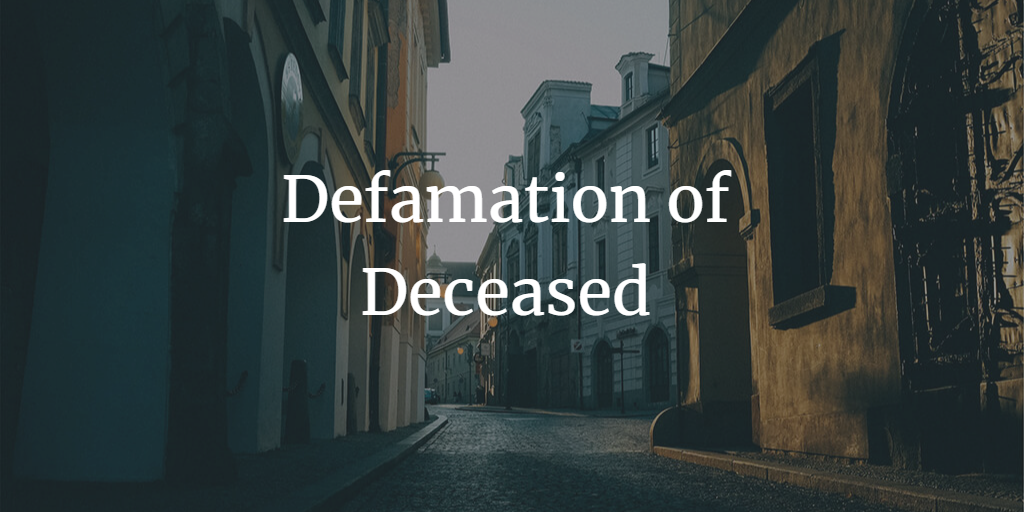Defamation of Deceased – Analysing the sustainability of action from Criminal and Civil Law Perspective

Defamation of deceased individuals is a sensitive and complex issue. This blog post will delve into the legal aspects of defamation of the deceased, analyzing the sustainability of such actions from both criminal and civil law perspectives in India.
Table of Contents
Defamation: A Brief Overview
Defamation of Deceased in Criminal Law
Defamation of Deceased in Civil Law
Comparing Criminal and Civil Defamation
Conclusion
1. Defamation: A Brief Overview
Defamation is the act of making false and damaging statements about someone, tarnishing their reputation in the eyes of others. In India, defamation can be classified into two categories:
Criminal Defamation: Governed by Sections 499 and 500 of the Indian Penal Code (IPC)
Civil Defamation: Governed by tort law, which allows the aggrieved party to seek damages for the harm caused to their reputation
2. Defamation of Deceased in Criminal Law
In criminal law, defamation of deceased persons is addressed under Section 499 of the IPC, which states that defamation can also extend to a deceased person if the imputation harms the reputation of the deceased and is intended to be hurtful to the feelings of their family or other near relatives. In such cases, the aggrieved party can file a criminal complaint under Section 500 IPC, which prescribes imprisonment for up to two years, a fine, or both as punishment for defamation.
3. Defamation of Deceased in Civil Law
In civil law, the position is less clear. Generally, the right to sue for defamation is considered a personal right that does not survive the death of the aggrieved individual. However, some jurisdictions may allow the deceased's estate or their family members to file a civil suit for defamation if the defamatory statements have caused material harm to the deceased's estate or the family's reputation.
4. Comparing Criminal and Civil Defamation
The primary difference between criminal and civil defamation lies in the remedies and the purpose of the legal action:
Criminal Defamation: Seeks to punish the offender for their wrongful act and deter future defamatory conduct
Civil Defamation: Seeks to compensate the aggrieved party for the harm suffered due to the defamatory statements
While criminal defamation of deceased individuals is explicitly addressed under the IPC, civil defamation remains ambiguous and varies depending on the jurisdiction.
5. Conclusion
Defamation of deceased individuals raises complex legal questions from both criminal and civil law perspectives. While criminal defamation explicitly covers deceased persons under the IPC, civil defamation's applicability remains uncertain, as the right to sue is generally considered personal and non-transferable. In either case, understanding the legal aspects and sustainability of defamation actions is crucial for protecting the reputation and dignity of deceased individuals and their families.


